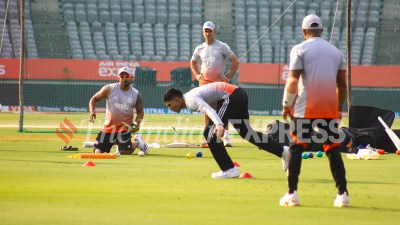Vegans bones ‘a bit less dense’ than meat-eaters
Though it may not be a problem,but a new research has revealed that vegetarians and meat-eaters are five per cent different in their bone density.
Though it may not be a problem,but a new research has revealed that vegetarians and meat-eaters are five per cent different in their bone density.
Until now,medical opinion about the impact of vegetarian diets on bone health has been based on anecdotal evidence and a range of contradictory findings that sometimes rely on studies too small to be biologically relevant.
Now,an international team reviewed nine such studies on the subject,which compared bone mineral density of meat- eaters and vegetarians from around the world,including 2,749 men and women.
Their results showed people on vegetarian diets have BMD roughly five per cent lower than non-vegetarians which researchers have claimed might not be a problem at all.
Lead researcher Tuan Nguyen of Garvan Institute of Medical Research said: “There has been much debate surrounding this issue. Discrepancies in findings,inadequate clinical samples and poor comparative data led to the confusion.
“We found there was practically no difference between meat eaters and ovolactovegetarians. While there is a difference between meat eaters and vegans,that difference is small.
“Many studies tell us,for example,that countries with a high rate of vegetable consumption have a low risk of hip fracture. Other studies highlighted lower BMD measurements among vegetarians and have come to the opposite conclusion.”
Nguyen added: “The truth,of course,encompasses many dietary and lifestyle factors. While BMD is important,it is not the only thing that contributes to fracture risk.
“We conclude that vegetarians as a group have lower BMD than meat eaters as a group,but whether the difference translates into increased fracture risk has yet to be resolved.”
The findings are published in the ‘American Journal of Clinical Nutrition’.
- 01
- 02
- 03
- 04
- 05



























